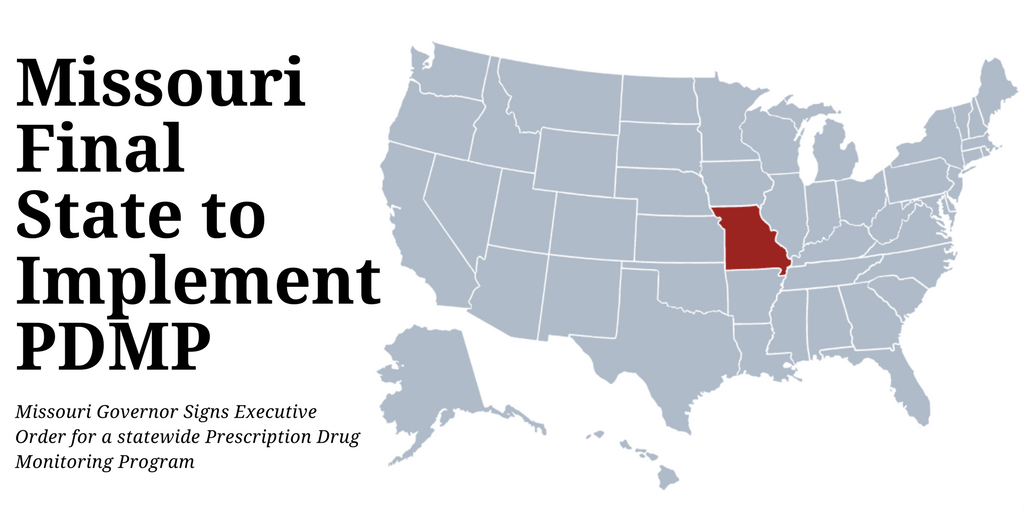
Missouri Governor Eric Greitens recently signed Executive Order (EO) 17-181 directing the Missouri Department of Health and Senior Services (DHSS) to create a statewide Prescription Drug Monitoring Program (PDMP). Despite legislative efforts for more than a decade, Missouri is currently the only state lacking such a program.
The governor’s announcement of the statewide PDMP said that it will utilize de-identified data from private sector partners to target “pill mills” that pump out prescription drugs at dangerous and unlawful levels. It will monitor both prescribers and dispensers of Schedule II through Schedule IV controlled substances in an effort to go directly to the source of drug shoppers. Opioids are the main focus as the national plague is hitting hard in Missouri with over 900 deaths in 2016 being due to opioid overdoses.
The executive order received national praise. Richard Baum, Acting Director of National Drug Control Policy stated, “In the context of both the ongoing opioid epidemic and the health of Missourians, it’s vital to have safeguards in place to make sure that doctors aren’t overprescribing opioids that can be misused and patients aren’t doctor-shopping for multiple prescriptions that could be misused or diverted.” Secretary Tom Price of the U.S. Department of Health and Human Services also praised the Governor stating, “I commend Missouri Governor Eric Greitens for taking a strong step in fighting the opioid epidemic by joining other states in establishing a Prescription Drug Monitoring Program (PDMP). I commend Governor Greitens for his leadership in Missouri as we all work to detect and deter the abuse of prescription drugs.”
State statute prevents Missouri from identifying patients, so they will be focusing on the prescribers and the dispensers with data from pharmacy benefit management organizations. They plan to be live with data from Express Scripts Holding Co. later this summer and hope to contract with two additional pharmacy benefit management organizations as well.
Due to the lack of a statewide program, local counties, led by St. Louis County, took it upon themselves earlier this year to create a prescription monitoring program. The St. Louis County PDMP focuses at the patient level instead of on prescribers and dispensers. The county program has three goals listed on its website2:
1) Improve controlled substance prescribing by providing critical information regarding a patient’s controlled substance prescription history
2) Inform clinical practice by identifying patients at high-risk who would benefit from early interventions
3) Reduce the number of people who misuse, abuse, or overdose while making sure patients have access to safe, effective treatment
The new statewide PDMP is hoped to be a companion to the county program which covers the majority of the state, not a replacement, as the two systems take different approaches to combating the opioid epidemic.
1.https://governor.mo.gov/news/archive/governor-eric-greitens-announces-statewide-prescription-drug-monitoring-program
2. http://www.stlouisco.com/HealthandWellness/PDMP